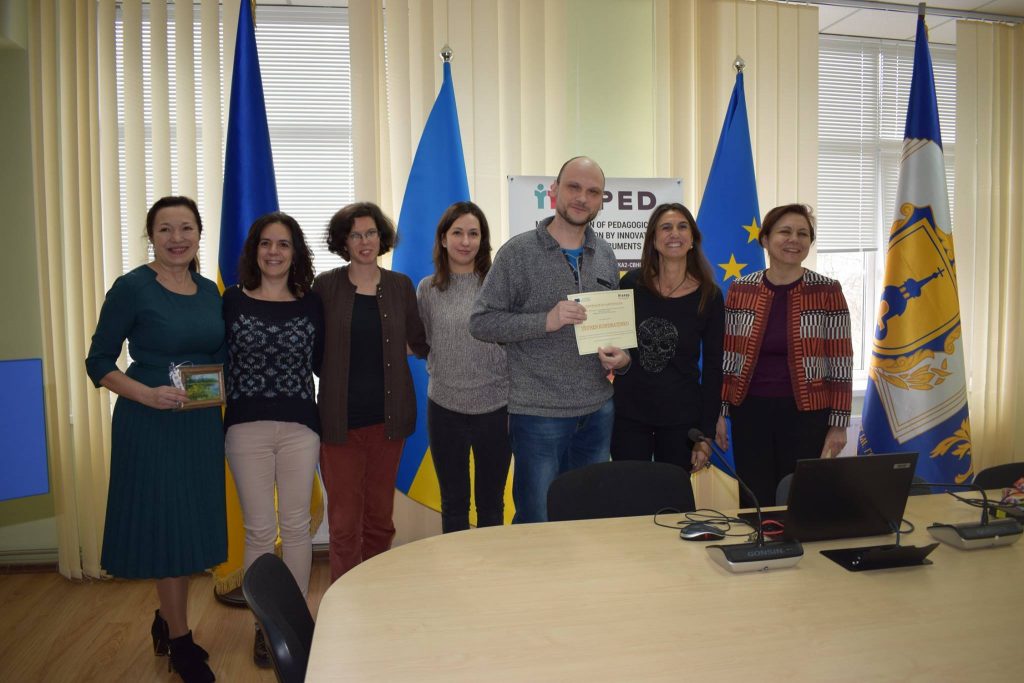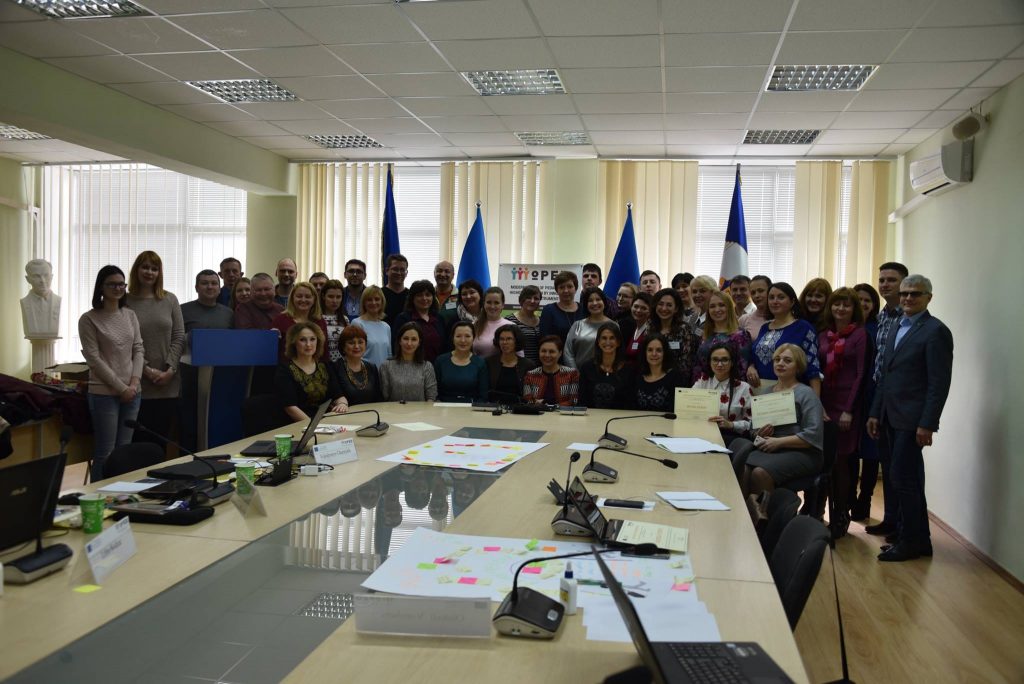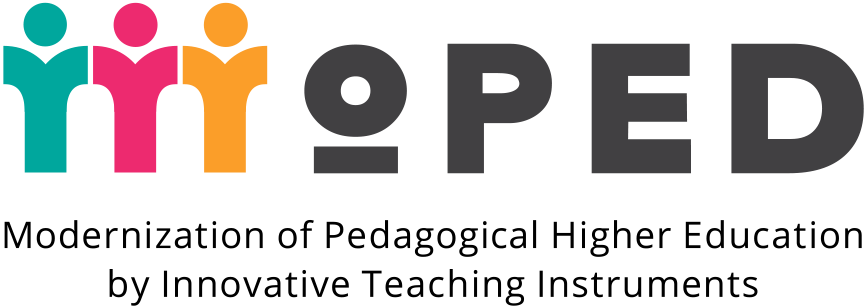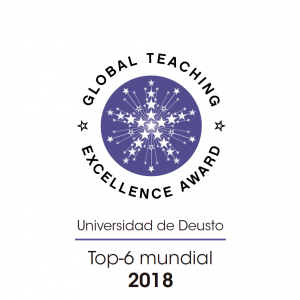MoPED aims at modernizing curricula for Pedagogical Schools of Ukraine by incorporating novel courses of modern ICT teaching tools and inquiry methods. By answering the contemporary challenges and requirements and supporting ambitious large-scale educational reforms in Ukraine, the project will impact the quality of pedagogical higher education and enhance digital and didactic competences of future school teachers.
The main objectives of the project are:

- To create and accredit eighteen new courses and learning materials of STEAM Bachelor’s and Master’s Degree Programme in participating Ukrainian Higher Education Institutions.
- To train more than 500 lecturers and academic staff of Ukrainian Teacher Training Institutions to guarantee the exploitation and sustainability of developed courses and design of brand-new ones. For that purpose, European university’s teams prepared training sessions for academic staff of their Ukrainian colleagues. In March 2019 University of Deusto team (Dr. Arantza Arruti, Dr. Maria Luz Guenaga, Dr. Mariya Yarosh and Olga Dziabenko) shared their knowledge on the several topics including: school teachers as entrepreneurs, open schools for open society, inquiry and computational thinking skills and methods its development, and competence building and intended learning outcomes measurements. 52 participants of this activity from Ukrainian university became agents of the development in their home institutions bringing new methodology and instrument for their instruction.
- To settle “Innovative classroom” in each Ukrainian universities as a 21st Century learning space based on best European practices. If school and university administration would like to plan and design the innovative learning space – the business board game is developed to support and inspire them.
- To establish effective cooperation between European and Ukrainian Pedagogic universities, school teachers, and their associations strengthening internationalization, knowledge transfer, and academic capacity.
In order to achieve these objectives the MoPED will perform the following tasks:
- to produce 3D map, which will merge education trends, pedagogical methodology and approaches, pedagogical technology, and education institutions in Ukraine, at the same time pick the best products of European Higher Education;
- to deliver a guide to build teaching and academic staff profile on digital competences;
- to build MoPED ecosystem communicating with main education actors in the country. The ecosystem will be formatted on the base of the innovative classroom, faculties of the universities, and local and regional educational communities;
- to pilot the new courses with more than 500 university students from Ukraine;
- to share knowledge gained from EU partners with more than local school teachers;
- to organize project conference and masterclasses.

By the end of the action we expect that MoPED will influence on Ukrainian higher education actors – students, teaching staff, and administration; school teachers and students; other stakeholders such as policymakers, local communities, and parents, i.e., society in whole. Ukraine will receive highly-skilled and relevant to contemporary labour market population that will be prepared to meet new economic, financial, and social challenges.[:]
Olga Dziabenko
Latest posts by Olga Dziabenko (see all)
- The Workshop Kit - 20 abril, 2021
- MoPED: Modernization of Pedagogical Higher Education by Innovative Teaching Instruments - 8 octubre, 2019




Deja una respuesta